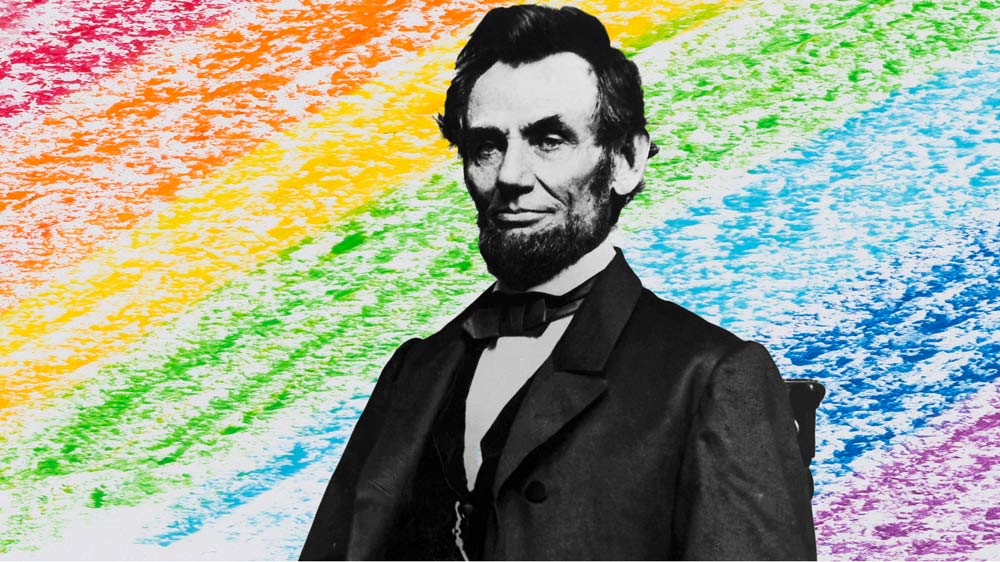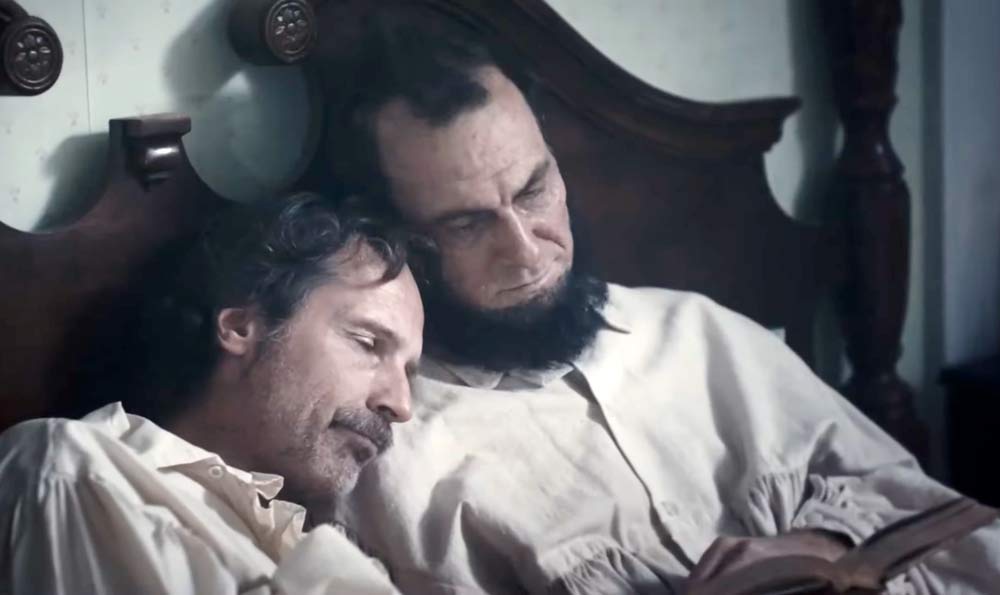
Sep 6
EDGE Interview: New Doc Asks, Was Abraham Lincoln a 'Lover of Men?'
Kilian Melloy READ TIME: 8 MIN.
America's greatest president was arguably a genius in several respects: A masterful statesman, a tactician, a man of great intellectual gifts and a talent for hearing, and communicating with, the people.
And, despite latter-day, self-proclaimed comparisons by America's 45th president, our greatest commander in chief still stands head and shoulders above the pack, having shepherded a bitterly divided nation through its greatest peril: The American Civil War, a conflict that raged from 1861 – 1865, aspects of which are still hotly contested today.
The accepted historical interpretation of the war's origins is that Abraham Lincoln was against allowing slavery to expand from the Southern states into the nascent Western states, and the secession of seven Southern states from the Union – and their declaration that they were now a new nation, the Confederate States of America – was triggered by Lincoln's election, in 1860, to the presidency. Lincoln held the course, declared that enslaved Black people were free, and guided the Union to victory over the Confederacy, only to be murdered a mere five days after the South conceded defeat.
He was a hero to the cause of equality and the preserver of the United States of America as "one nation." But was Lincoln – wise, unflinching, deeply humanistic – also queer?

The case has been made before, despite such terminology having originated after Lincoln's time. Until the 20th century and notions of "sexual inverts" (later dubbed homosexuals) deeply emotional friendships between men, complete with tender physical contact and expressions of endearment, were commonplace. Indeed, as the new documentary "Lover of Men" notes, both men and women were expected to carry out "homosocial" friendships that did not cross gender lines. Given this, even reports that Lincoln shared his bed for years on end with another man don't seem to signal that he was necessarily gay; after all, homes in the 19th century weren't heated as efficiently as they are now.
But those counter-arguments lose force in the face of the revelations contained in "Lover of Men," which explains more fully who Lincoln was, who the significant men in his life were, and how he was only reluctantly married to Mary Todd – to whom he had been engaged once before, only to break that engagement off in order to placate Joshua Fry Speed, the scion of a slaveholding family with whom Lincoln famously shared his bed for four years (despite, we learn in the documentary, having had the option of a bed to himself). Indeed, we're told, Speed was "the love of Lincoln's life," and evidence both of Lincoln's sexual relationship with Speed – and his sexual jealousy when Speed was compelled to marry, freeing Lincoln up to wed Mary Todd – are presented here.
Speed wasn't the only man with whom Lincoln was so intimate. The man who would become our 16th president shared a bed no bigger than a cot with a fellow named Billy Greene, enjoyed the tutelage of a man named William Mentor Graham with whom he lived for half a year, was smitten with Elmer Ellsworth – the leader of a militia composed of self-styled "Zouaves" – and, even after having been married for years, shared his bed (and his nightshirts) with his bodyguard, Capt. David Derickson. The film investigates each of these relationships, revealing surprising details that illuminate the argument that, even if Lincoln would not have understood the word "queer" as we do now, the term described him all the same.
EDGE had the opportunity to delve into the film, and the history behind it, in a chat with director Shaun Peterson; historian Tom Balcersky, author of "Bosom Friends: The Intimate World of James Buchanan and William Rufus King," as well as the 2016 article "Beards, Bachelors, and Brides: The Surprisingly Spicy Politics of the Presidential Election of 1856," which compellingly compared the election that year to the election of the article's title; and Harvard Professor of English and of African and African-American Studies John Stauffer, author of 19 published books, with a 20th – on Charles Sumner, the abolitionist and Massachusetts senator who was famously attacked and almost beaten to death by slaveholder and South Carolina Rep. Preston Brooks – on the way. It would be hard to imagine a gathering more qualified to address not only speculations around Lincoln's sexuality, but the ways in which America's current moment all-too-closely parallels America of the 1860s.
"Lover of Men" opened on September 6 in limited release. Visit the film's website to see if it is in a theater near you.
Kilian Melloy serves as EDGE Media Network's Associate Arts Editor and Staff Contributor. His professional memberships include the National Lesbian & Gay Journalists Association, the Boston Online Film Critics Association, The Gay and Lesbian Entertainment Critics Association, and the Boston Theater Critics Association's Elliot Norton Awards Committee.







